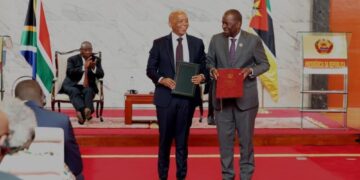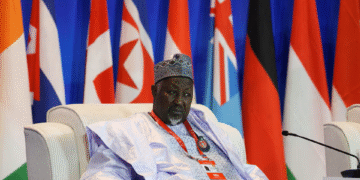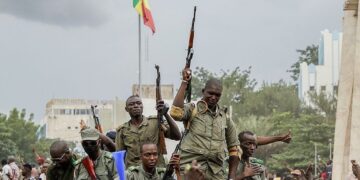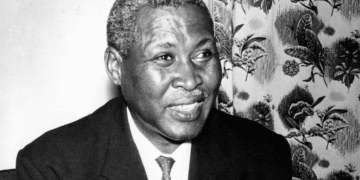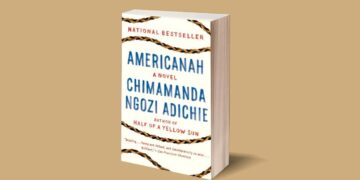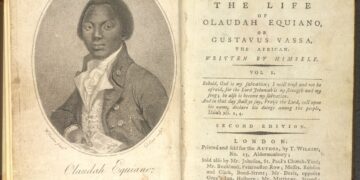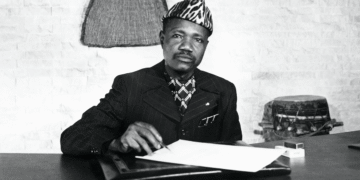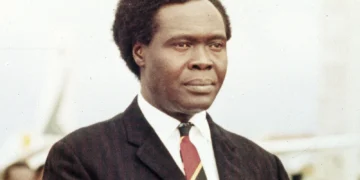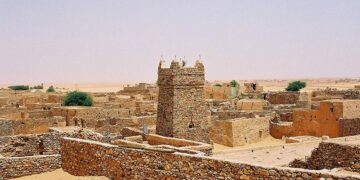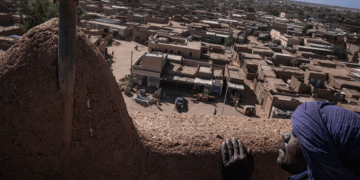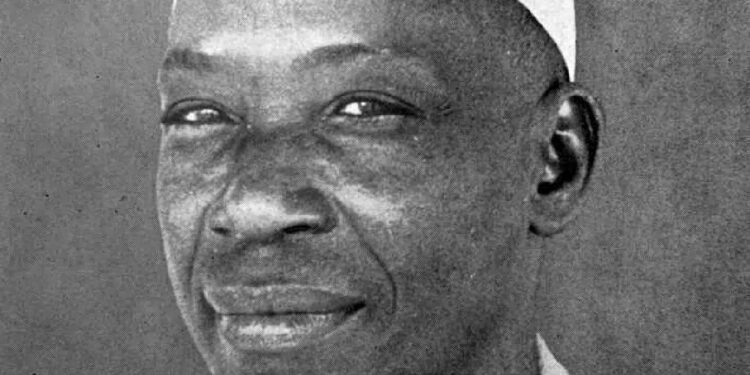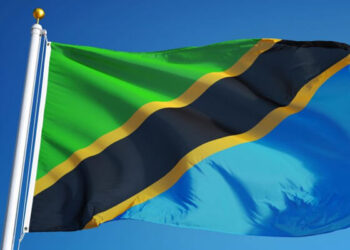Shaaban bin Robert is one of the most prominent and important literary figures in East African history and is considered the “Father of Modern Swahili Literature.” Although he died decades ago, his literary and philosophical legacy lives on, taught in school curricula, and inspiring generations of writers and readers in Tanzania and other Swahili-speaking countries. He left behind a vast body of work, including poetry, novels, short stories, essays, and translations, which reflect the depth of his thought, his linguistic prowess, and his commitment to the causes of his community and nation.
Shaaban bin Robert was born in 1909 in a small village near Tanga in what was then German Tanzania (now Tanzania). He did not have extensive educational opportunities by today’s standards but attended the government primary school in Tanga, where he was educated in Swahili and Arabic, as well as some basic English. However, he made up for his lack of formal education with self-study and a passion for knowledge and reading. He spent long hours studying classical literature, history, and philosophy, which greatly enriched his intellect and linguistic skills.
Shaban bin Robert began his career in the service of the British colonial government (which took over the administration of Tanganyika after World War I) as an administrative officer in various regions. This position afforded him a unique opportunity to travel and learn about the cultures and customs of the diverse peoples of East Africa and also gave him time for writing and reflection. He often worked at night after his official work hours, devoting himself to his literary passion.
Shaban ibn Robert’s creativity is evident in the diversity and depth of his works. He wrote in almost every literary genre, leaving a clear mark in each. He is considered one of the greatest Swahili poets. He wrote traditional poetry that followed specific meters and rhymes, as well as free verse. His poems dealt with diverse themes such as love, nature, patriotism, morality, philosophy, and history. Among his most notable poetry collections are “Utenzi wa Vita vya Uhuru” (The Epic of the War of Freedom), “Pambo la Lugha” (The Ornament of Language), and “Kielezo cha Fasaha” (The Paradigm of Eloquence). His poetry was characterised by rich language, expressive rhetorical imagery, and a depth of thought that invited contemplation.
Although Swahili had not experienced significant development in the art of the novel before his time, Shaban ibn Robert contributed significantly to the consolidation of this literary genre. His novels, such as “Kusadikika” (To Be Trusted) and “Adili na Nduguze” (Adili and His Brothers), are not just simple stories; they are symbolic and philosophical novels that address issues of good governance, justice, morality, and development. “Kusadikika,” for example, is an allegorical novel about a fictional country ruled by corruption and greed, carrying powerful messages about the necessity of integrity and responsibility.
Shaaban bin Robert wrote numerous articles on social, political, and cultural issues. He had a regular column in a local newspaper, which he used to express his views on language, education, morality, and patriotism. He also wrote partial autobiographies, such as “Maisha Yangu Baada ya Miaka Thelathini” (My Life After Thirty Years), which offer valuable insights into his life, experiences, and thoughts on society.
Shaaban bin Robert recognised the importance of translation in enriching Swahili literature and broadening readers’ horizons. He translated portions of Shakespeare’s works into Swahili, demonstrating his ambition to link Swahili literature with world literature and to present timeless works to the Swahili audience.
Shaban bin Robert transcended being a mere writer to become a philosopher with a profound vision for his society and its role. He was a firm believer in Tanzanian patriotism and African nationalism. He advocated unity among the peoples of East Africa and emphasised the importance of pride in African identity and Swahili culture. His works aimed to instill a sense of self-esteem in his readers and encourage them to contribute to nation-building.
Shaban bin Robert was a tireless champion of the Swahili language. He saw it as a tool for unity and communication among the diverse peoples of East Africa and as a carrier of culture and heritage. He dedicated his life to developing and enriching the language, both through his original writings and by advocating for its use in education and administration. His book, “Pambo la Lugha” (The Ornament of the Language), is considered a reference on Swahili grammar and style.
Shaban bin Robert’s works are permeated with powerful messages about morality, justice, honesty, hard work, and social responsibility. He believed that literature should have a noble purpose and contribute to building a better society by instilling positive values in individuals.
Shaban bin Robert believed that education was the key to progress and liberation. He advocated for the dissemination of knowledge and science, urging young people to read and think critically. He viewed literature as a means of spreading enlightenment and broadening the horizons of understanding among the masses.
Shaban bin Robert died in 1962, shortly before the independence of Tanganyika (later Tanzania). Despite this, his influence on Swahili literature and East African culture is invaluable. His works contributed to the standardisation and development of Swahili as a rich and standardised literary language. He played a significant role in establishing Swahili as the national language of Tanzania and the primary language of communication in East Africa.
Shaban bin Robert enriched Swahili literature to an unprecedented extent, providing unique examples of poetry and prose that inspired generations of writers. His writings played a pivotal role in instilling national awareness, a spirit of resistance against colonialism, and a readiness to build an independent nation.
Similarly, the works of Shaban bin Robert are widely taught in schools and universities in Tanzania and East Africa as an essential part of the Swahili language and literature curriculum. Shaaban bin Robert has become a cultural icon in Tanzania, with events held and commemorative stamps issued in his name.



